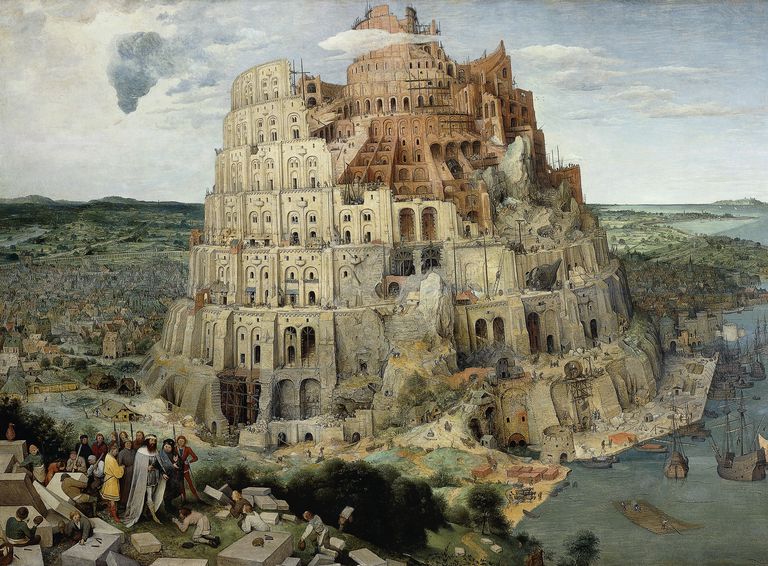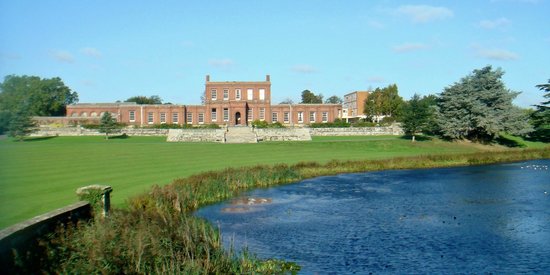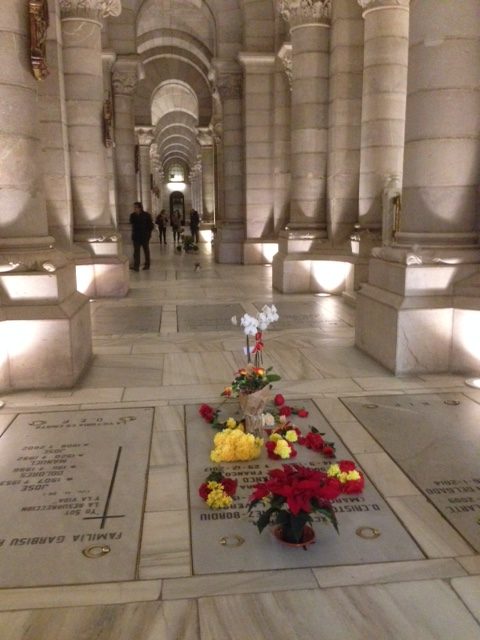Agradeço a Levi, que traduziu a primeira das postagens refletindo sobre o Brasil. Eu escrevi outros quatro posts. Neste momento eles são apenas em inglês. Aqui estão os links:
(Graças ao Google Translate para as frases acima! Você pode querer usar isso para dar uma tradução menos que perfeita das outras postagens.)
O Pano de Fundo
Nos próximos dias eu planejo fazer algumas postagens no blog sobre alguns dos temas dos quais tratamos quando estivemos no Brasil. São apenas perspectivas, mas é claro, muito próximas da verdade! O contexto em que estávamos ministrando era um país que testemunhou um grande crescimento da igreja, mas ainda tem altíssimos níveis de corrupção e ocultismo, e o tempo em que estávamos lá foi o período crítico das eleições presidenciais. Essa série de postagens também foi motivada pela colocação que fiz há algumas postagens atrás sugerindo que a misoginia é uma fortaleza maléfica da qual precisamos nos arrepender e que precisa ser derrubada. O conceito de “cavar” até atingir os alicerces tem estado em nossa perspectiva já por algum tempo e também vai contribuir para o conteúdo dessas postagens.
Interpretar a bíblia… há muitos princípios na hermenêutica e um dos principais é o de que precisamos descobrir a intenção do autor ao escrever. Isso parece muito claro, mas… e se Deus houver posto um significado “escondido” que só eu pudesse discernir (não estou dizendo isso de forma totalmente séria, mas talvez a ideia seja de que pode haver mais no texto do que o autor planejou inicialmente). Há também o elemento da interpretação do leitor. Ler a bíblia num idioma que não é o seu nativo é sempre interessante. As frases soam diferente e provocam novas ideias. Essa experiência me deixa mais aberto para novas leituras do texto.
Essas postagens serão um misto de pensamentos sobre o contexto, entendimentos das escrituras e algumas consequências decorrentes disso. Talvez não seja uma leitura fácil, mas espero que seja recompensadora.
Preparativos para ir ao Brasil
A Gayle foi ao Brasil com um desejo de ver mais espaço sendo aberto para a voz feminina, não simplesmente para demarcar uma concordância teológica baseada na bíblia, mas para que as profundas estruturas masculinas (e algumas vezes misóginas) fossem desafiadas. Mesmo que teoricamente as pessoas concordem com isso, é possível que não haja espaço para a voz das mulheres. Discussões e diálogos podem acontecer de uma forma que a voz feminina (e isso não se restringe à “mulher” em si) não seja ouvida.
Na Espanha há alguns grandes exemplos de feminilização da política. Ada Colau e Manuela Carmena, as prefeitas de Barcelona e Madri respectivamente, têm abordado algumas questões de forma não confrontadora, buscando o diálogo baseado no respeito e em ouvirmos uns aos outros. Contudo, no Brasil, os movimentos feministas têm se posicionado quase sempre de forma agressiva em oposição ao status quo e aos homens. Foi difícil transmitir essa perspectiva aos diversos ambientes onde estivemos, mas as mesas onde nos sentávamos para comer eram o lugar onde havia espaço e onde ganhávamos terreno, e a partir dali, conseguimos atingir contextos mais amplos.
Esse aspecto de ouvir a voz da feminilidade e abrir espaço para ela, não estava sendo enfatizado por acaso, mas na medida em que fazíamos o esforço de cavar as camadas mais profundas, o que começou a se desenvolver foi um grupo de ideias que pareciam se conectar entre si. O que vou dizer é um tanto inusitado, mas pouco antes de viajarmos para o Brasil Gayle teve um encontro com o anjo de Cádiz chamada Gadir, e ela foi conosco para o Brasil. Há um grande contexto por trás desse fato, mas nosso primeiro encontro com ela esteve conectado a uma situação onde ministramos libertação sobre as jovens de Cádiz e da Espanha. Recentemente em Cádiz tem havido algumas escavações e, sendo ela uma das mais antigas cidades ainda habitadas tendo uma história muito antiga, percebemos que sua atuação era a liberação da feminilidade e isso seria realizado através de um sério esforço de escavação.
A Jornada de Jesus encarnado começou nas alturas, foi até o lugar mais profundo, e voltou a subir. Ele fez isso para que pudesse preencher todas as coisas para o seu corpo, que é a igreja. A igreja então é a plenitude dele que preenche todas as coisas em todas as circunstancias (Efésios). Muitos de nós temos estado confortáveis com o conceito de guerra celestial e embora as práticas sejam diferentes, o que buscamos ao fazer guerra espiritual é impor limitações aos poderes celestiais hostis. Devemos ter foco nas coisas “do alto”, mas e quanto as coisas “das profundezas”? Embora não estejamos falando de alto e profundo num sentido literal, começamos a ver que havia um trabalho a ser feito para escavar as camadas profundas das estruturas que têm sido os alicerces da sociedade. Se o evangelho de fato diz respeito à transformação social (“há um novo mundo”) então esses alicerces precisam ser transformados espiritualmente.
Algo fundamental na criação foi a formação da humanidade com os gêneros masculino e feminino, segundo a imagem de Deus. Quando o relacionamento de um com o outro é distorcido, o resultado é uma falha nos alicerces. Por extensão o relacionamento entre um e outro, homem e mulher, deve ser posto no contexto da relação com todos os “outros”, sendo que o nível mais alto de cura é o amor pelos inimigos. O amor precisa ser descoberto e o que resiste ao amor, resistiu.
Pecado – não de acordo com a lei
Nossa herança teológica vem principalmente do período da Reforma, onde se enfatizava que o pecado é a quebra da lei. Normalmente compreendemos a Torá como sendo uma apresentação dos padrões de Deus, sendo Jesus o indivíduo perfeito que sofreu a punição pela culpa do mundo. Deixe-me sugerir uma abordagem diferente.
Em Romanos, Paulo parece desenvolver o conceito de que o cerne do pecado é excluir Deus, e como resultado, viver todo tipo de comportamento errado. Valores errados (enaltecer e adorar coisas erradas) foi o elemento principal da queda. A generosidade de Deus – coma de todas as árvores, exceto UMA – foi rejeitada com a insistência de que obteríamos frutos da árvore proibida. Isso foi é uma quebra de lei, mas o aspecto central desse ato é a transgressão dos limites no sentido de insistir em afirmar nosso direito de tomar coisas para nós. “Eu vi, eu desejei, eu tomei e comi”, esse é o testemunho do estado de um mundo caído. Na Torá há muitos mandamentos para não se remover os limites das propriedades, não tirar vantagem sobre os outros, não colher a safra completamente, ser contentado, dar espaço àqueles que não têm espaço… e havia implícito na lei um programa para que quando as coisas se desenvolvessem de forma errada elas fossem postas de volta em seu lugar com a libertação do sétimo ano e o jubileu a cada 50 anos.
O pecado se manifesta quando tomamos um espaço que limita o espaço do outro. Esse foi o resultado no relacionamento entre o homem e a mulher, com o homem “dominando” sobre a mulher. Eles foram comissionados para dominarem juntos, mas o resultado do pecado foi o domínio do homem sobre a mulher. A missão compartilhada se tornou desigual, e ainda pior, o foco que era cuidar do espaço se tornou domínio sobre o outro. A batalha por espaço é a história do conflito, contada pelos que estão embaixo e é a história da escravidão; contada do ponto de vista do vitorioso e é o militar e a vitória que vem em troca.
Paulo não constrói a ideia de que simplesmente “todos pecaram e por isso são culpados”, mas que tanto o judeu com a lei e o gentio sem a lei pecaram:
Não há diferença entre judeu e gentio, pois todos pecaram e estão destituídos da glória de Deus (Rm 3.22-23)
O significado não mudaria se trocássemos “todos” por “ambos”. Tanto judeu quanto gentio pecaram e esse pecado é definido como ser destituído da glória de Deus. A questão principal não é a quebra da lei, mas não viver de acordo com o chamado criacional de Deus. Esse chamado era para sermos verdadeiramente a imagem de Deus. Somente Jesus veio nessa forma. Somente Jesus cumpriu verdadeiramente o chamado e João nos informa que contemplamos sua glória, cheio de graça e de verdade (Jo 1.14). A verdade tem que vir num pacote de graça. De outra forma não haverá glória.
O Deus triuno é revelado quando um ser humano vê outro ser humano nessa mutualidade e abre espaço para que o outro cumpra o seu destino – sem amarras, mas através de um amor generoso. Esse é o chamado no casamento, mas não apenas do casamento, e Jesus, sendo solteiro, cumpriu esse desígnio em totalidade entregando a si mesmo em amor irrestrito não por um “outro”, mas por todos os “outros”. Somente nesse lugar de abnegação é que a glória é revelada. Falhar em fazer isso é ser destituído da glória de Deus e Paulo diz que não há distinção, judeu e gentio foram destituídos da mesma forma. Uma passagem muito importante com relação à transformação que Jesus gera em nós e em nosso mundo está em 2 Co 5.16-17:
Então a partir de agora não consideramos ninguém a partir de um ponto de vista mundano. Embora tenhamos considerado Cristo dessa forma anteriormente, essa não é mais nossa atitude. Portanto, se alguém está em Cristo, a nova criação chegou: O velho se foi, o novo está aqui!
Estar em Cristo é ter uma mudança na visão. Não podemos ver as pessoas da forma como elas normalmente são classificadas: por causa de seu contexto de vida, educação, dinheiro, gênero, orientação sexual; mas de acordo com seu destino. As pessoas são vistas de forma diferente porque – para os que estão em Cristo – há um novo mundo. Há um novo mundo que ainda virá, certamente. Mas a visão é tão clara que já podemos ver um novo mundo – através das palavras de Martin Luther King, “Eu tenho um sonho”.
Há um clamor na criação, que é o clamor por libertação (Rm. 8). Esse clamor nem sempre é bem articulado e muitas vezes se expressa por meio de frustração e ódio. O clamor vem das ruas e se o que está sendo ouvido puder ser interpretado para além do gemido doloroso então estaremos ouvindo a própria sabedoria clamando. Em Romanos 8 vemos o clamor da pessoa que encontra liberdade na união com o Espírito de Deus e clama “Aba Pai”. Da mesma forma que nosso clamor foi direcionado a Deus, o clamor da sociedade é direcionado àqueles que vêem um novo mundo, aqueles que estão em Cristo. (Ao utilizar o termo “Em Cristo” não estou dizendo que o clamor da sociedade não pode ser respondido por aqueles que “não” estão em Cristo, mas enfatizando que nós que pertencemos a Cristo carregamos uma responsabilidade maior).
O clamor, até mesmo das feministas agressivas do Brasil, ou o clamor dos grupos marginalizados (LGBTQ, #Eu Também, Vidas Negras Importam e muitos outros) é no fundo o clamor da criação por libertação, mesmo que seja abafado ou distorcido. Não podemos silenciar esse clamor, pois se pudermos ver de forma diferente, ouviremos a voz do Espírito em meio ao barulho e à gritaria. O clamor vem “de baixo”.
Visão e som
No parágrafo anterior eu sugeri que precisamos ver de forma diferente para ouvir de forma diferente. Essa dinâmica é apresentada no livro de Apocalipse, onde a visão esclarece ou corrige o que foi ouvido. João ouve que o Leão triunfou, mas quando se volta ele vê um cordeiro. A linguagem do poder pode ser e é distorcida para justificar a dominação. A visão é vital se quisermos ouvir o som de forma precisa. Nunca ouviremos o clamor da criação se não pudermos ver o “outro”. Há um som se levantando – estamos conseguindo ver aqueles que estão gemendo, gritando, e até mesmo usando palavras de ódio?







